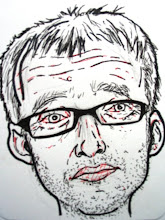I have been out of orbit on the blog for quite a while. But an escalating scandal here in Denmark just needs my two cents.
Basically, one employee in the very top of the Danish Defence has produced a fabrication to influence the Danish public by shaping the narrative of a controversial case. That is exactly the type of disinformation operations that the Soviets were masters at, also known as black (hidden) psyops.
The problem here is twofold: First of all, the most obvious, this is of course a disheartening action by a high ranking officer in a democratic country. Luckily he was found out rather quickly. But secondly, the fabrication and its dissemination was utterly unprofessionally carried out and then brought on by a number of top Defence employees, ending at the Defence Minister, with no simple technical questions asked until later. This might hint a structural dyslexia of the mechanics of public relations - and consequently information operations, which is an increasingly important part of modern war- and peacefare.
The case
* A former Jægerkorps soldier (Special Forces) was about to publish a book about his time in the forces. The book was a typical example of a secret operative who wanted to get some overdue glory and was unnecessarily full of technical details. The Defence Command moves to get the Court to restrain it on 14 September, stating that it contains unspecified knowledge that can be used by current enemies of Danish soldiers. Having read it, I understand why the Defence Command thought this.
* Seeing a potential limit to the freedom of expression, the newspaper Politiken quickly published the entire book as a section in their newspaper 16 September. The book had most likely been explicitly given to the paper by the publisher for that purpose, although the publisher banged the litigation drums. The same day the book is published on WikiLeaks.
* The Defence's IT executive translates the book via Google Translate, pastes it into a word document and says he found it on a torrent download site. This is then quickly brought through the ranks, sent to a newspaper on 23 September and repeated casually by the Defence Minister on a press conference 24 September. The paper, however, quickly establishes that the translation is Google gobbledygook and the Word file specifies that it is created by the Defence Command.
* In the coming days, the Defence Minister and the Defence Command's press relations executive both deny that the translation should be made by the Defence itself. They can't, they say, identify who sent the translation to the newspaper.
* On 1 October the IT Executive steps forward and is relieved of command immediately. On 2 October, the Defence Command's Press relations executive admits that he sent the book to the newspaper. The Minister's personal press relations employee has also sent it to a journalist at the state television DR.
* On 4 October the Chief of Defence steps down.
What it means
Trying to plant fabrications to sway a public against a case is something that has been done very often by militaries around the world. During the cold war, this was a common pastime for various intelligence agencies. The Soviets, for example, was supposedly behind the rumour that AIDS was developed by US scientists - a claim you will still hear in various corners of the world. Later, the Russians under the newly elected president Putin went to the second Chechen war after buildings were blown up in Russia, alledgedly by Chechen terrorists, but later doubted by a number of independent researchers. Putting out a "meme" in written or physical ways to sway a public, is wildly influential if done with thought. Most countries, however, have laws explicitly forbidding its military to target its own population with "propaganda" and disinformation. In a globalised world, however, controlling the flow of falsifications is impossible.
In this case, the system worked: Sceptic journalists uncovered that something was amiss, politicians and more journalists continued digging until Danish Defence Intelligence started an internal investigation which made the culprit and the disseminators confess before their computers had even been scanned.
A few years back I looked at the Danish Defence's capabilities and prospects of taking up "information operations" (a label for a number of different communication capabilities, ranging from press relations to cyber war and psyops). Being a small country with limited resources, information operations was a force multiplyer that the Danish Defence couldn't live without, in my opinion. There were some structural and organisational difficulties, but nothing that couldn't be overcome if the Danish Defence's heart was put into it.
But this case shows that the involved, high-ranking officers, were rather naïve about what you could get away with. I don't blame the IT executive for thinking that you could trick a journalist, generally some of the most tech-unsavy people around in my experience. But concocting something a Wednesday afternoon and then unleashing it to prove a point, that's just plain stupid of a man you would put in charge of a frigate - or the entire Defence's IT systems.
The real consequence of this, apart from the heads that will roll, is that the people in the Defence who work hard and earnest to use information actively in warfare and towards publics in the world, will be put even further back as the Defence most likely will cramp up in fear of allegations of working with "propaganda. This will mean that information operations will not be prioritised and the Defence will try even harder than it admittedly already has to be seen as a fair and earnest media outlet.
Labels: Information Operations


